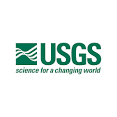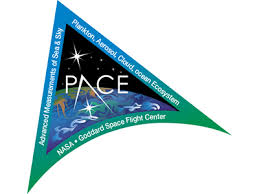NASA and USGS announce that on January 31, the Landsat 9 satellite passed its post-launch assessment review for transition into its operational phase.
Following internal data system readiness reviews, USGS began making Landsat 9 data fully and freely available to external users on February 10.
Find out more here: https://www.usgs.gov/ne
News
PACE Mission Summer Training!
|
|
Take the PrimeWater User Decision-making Survey!
PrimeWater has launched a survey to understand how social and institutional attributes determine the adoption of #EarthObservation-based services in #decisionmaking processes. They seek YOUR feedback today! It will take no more than 10-20 minutes to complete the survey. Your feedback is very valuable to them!
Take the survey here!
You can also watch a short tutorial video about completing the survey before you begin.
NASA Funded Research Opportunities in Space and Earth Sciences (ROSES)2022
NASA’s Science Mission Directorate (SMD) announces the release of its annual omnibus solicitation for basic and applied research, Research Opportunities in Space and Earth Science (ROSES) 2022 as NNH22ZDA001N on or about February 14, 2022, on the NSPIRES web page at http://solicitation.nasaprs.com/ROSES2022.
ROSES is an omnibus solicitation, with many individual program elements, each with its own due dates and topics. Table 2 and Table 3 of this NRA, which will be posted at http://solicitation.nasaprs.com/ROSES2022table2 and http://solicitation.nasaprs.com/ROSES2022table3, respectively, provide proposal due dates and hypertext links to descriptions of the solicited program elements in the Appendices of this NRA. Together, these program elements cover the wide range of basic and applied supporting research and technology in space and Earth sciences supported by SMD.
The ROSES NRA is written to allow program elements to issue grants, cooperative agreements, contracts, and inter- or intra-agency transfers, depending on the nature of the work proposed, the proposing organization, and/or program requirements. However, most extramural awards deriving from ROSES will be grants, and almost all program elements of ROSES specifically exclude contracts because it would not be appropriate for the nature of the work solicited. Organizations of every type, domestic and foreign, Government and private, for profit and not-for-profit, may submit proposals without restriction on teaming arrangements. Note that it is NASA policy that all research involving non-U.S. organizations will be conducted on the basis of no exchange of funds.
Awards range from under $100K per year for focused, limited efforts (e.g., data analysis) to more than $1M per year for extensive activities (e.g., development of hardware for science experiments and/or flight). Periods of performance are typically three years, but some programs may allow up to five years and others specify shorter periods.
The funds available and the anticipated number of awards are given in each program element and range from less than one to several million dollars, which allows for selection from a few to as many as several dozen proposals.
Electronic submission of proposals is required by the respective due dates for each program element and must be submitted by an authorized official of the proposing organization. Electronic proposals may be submitted via the NASA proposal data system NSPIRES or via Grants.gov.
Every organization that intends to submit a proposal in response to ROSES-2022 must be registered with NSPIRES; organizations that intend to submit proposals via Grants.gov must be registered with Grants.gov, in addition to being registered with NSPIRES. Such registration must identify the authorized organizational representative(s) (AOR) who will submit the electronic proposal. All proposal team members must be registered in NSPIRES regardless of the submission system, so we may perform automatic organizational conflict of interest checking of reviewers. Potential proposers and proposing organizations are urged to access the system(s) well in advance of the proposal due date(s) of interest to familiarize themselves with its structure and to enter the requested information.
Notices of intent to propose and step-1 proposals will be due starting in April 2022 and full (step-2) proposals will be due no earlier than May 16, 2022, through no later than May 12, 2023, by which time it is expected that the first full (Step-2) proposal due dates for next ROSES solicitation will begin.
Potential proposers are strongly encouraged to read Section I(d) of the ROSES Summary of Solicitation that lists Significant Changes from Recent ROSES.
To learn of the addition of new program elements and all amendments to this NRA, proposers may:
(1) Subscribe to the SMD mailing lists (by logging in at http://nspires.nasaprs.com/ and checking the appropriate boxes under “Account Management” and “Email Subscriptions”) and
(2) Get automatic updates of due dates using the ROSES-2022 due date Google calendar. Instructions will be available shortly after release at https://science.nasa.gov/researchers/sara/library-and-useful-links (link from the words due date calendar).
(3) and checking the ROSES-2022 Blog at https://science.nasa.gov/researchers/sara/grant-solicitations/roses-2022/
Frequently asked questions about ROSES-2022 will be posted at http://science.nasa.gov/researchers/sara/faqs/ shortly after release.
Questions concerning the individual program elements in ROSES should be directed to the point(s) of contact in the Summary Table of Key Information at the end of the program element and at http://science.nasa.gov/researchers/sara/program-officers-list/.
Subject matter experts are encouraged to sign up to be a volunteer reviewer at https://science.nasa.gov/researchers/volunteer-review-panels
Questions concerning general ROSES-2022 policies and procedures may be directed to Max Bernstein, Lead for Research, Science Mission Directorate, at sara@nasa.gov.
JMSE Special Issue: New Frontiers in Ocean Color Remote Sensing
Manuscripts due: February 20, 2022
The purpose of this Special Issue is to collect papers that are on the cutting-edge of these advancements and that fall under the collective rubric of ocean color remote sensing. This Special Issue encourages submissions from all aspects, technologies, and methods that involve the detection, analysis, and use of visible-band water radiance from the surface oceans. However, we are particularly encouraging submissions from the following areas:
(1) New sensors and platforms: the microsatellite trend is disrupting the traditionally dedicated ocean color sensor/satellite mission paradigm. Hundreds of low-cost and low-weight orbiting platforms host sensors collecting near-continuous visible-band data from the surface of the oceans. This call encourages submissions that utilize the “smallsat” data to improve scientific exploration and ocean monitoring.
(2) Sensor fusion: we now have a constellation of satellite-based and ocean-viewing radiometers collecting visible-band information in conjunction with smaller satellite platforms. How should these different data streams be blended or combined into new products? Can these data streams be merged with other data types to provide synoptic summary information about the physics, optics, and biogeochemistry of the surface oceans? This call seeks papers that provide new directions for the application and blending of ocean color information into analysis products.
(3) With the hyperspectral NASA PACE mission on the horizon, there is now a need for new algorithms and new applications for hyperspectral ocean color data. What new techniques for data processing, atmospheric correction, and inversion algorithms are poised to take advantage of the looming wealth of spectral information?
(4) Novel Applications: Data Assimilation—With multiple ocean color sensors providing daily global coverage—how can these data be used to improve ocean models or coupled biogeochemical ocean models?
(5) Pushing the resolution envelope—we encourage the submission of papers that exploit higher spatial and temporal resolutions to study and monitor the oceans at new time/space scales and examine new phenomena.
(6) Novel Applications—what is next? This call is not limited to the above bulleted points. Any paper that provides a novel method or application in the general field of ocean color remote sensing is strongly encouraged.
Dr. Jason Keith Jolliff Jason.Jolliff@nrlssc.navy.mil.
Guest Editor




